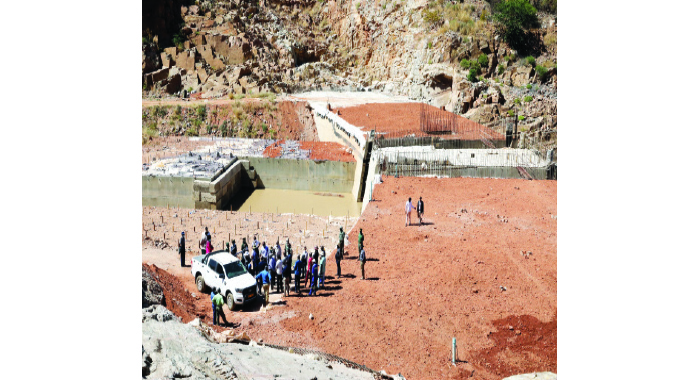Unicef warns of waterborne diseases outbreak in Byo, Hre
Yvonne Ncube, Chronicle Reporter
Unicef has warned of the possibility of an outbreak of waterborne diseases in Bulawayo and Harare as the cities are failing to manage their water reticulation systems.
The UN agency said diseases such as diarrhoea, cholera and typhoid are likely to be recorded in the two cities.
The warning follows the death of 13 people after a typhoid and dysentery outbreak in Bulawayo’s Luveve suburb and surrounding areas that resulted in nearly 2 000 getting sick last year.
The cause of the outbreak was identified as gastrointestinal disease which was attributed to vandalism of sewer pipes.
A report tabled in Parliament last year compiled by the Auditor-General Mrs Mildred Chiri also said Bulawayo City Council (BCC) is among six local authorities at risk of outbreak of waterborne diseases that could lead to deaths due to failure to manage sewer reticulation systems.
On its part, Unicef said in its latest report, while 2021 began with prospects of a better harvest due to improved rainfall and a reduction in severe food insecurity, the country could face a health crisis.
Bulawayo and Harare were singled out over the possibility of water-borne disease outbreaks.
“Unicef procured emergency supplies for prepositioning during the second quarter in preparation for sporadic outbreaks of diarrheal diseases, cholera and typhoid that may occur particularly in Bulawayo and Harare provinces,” it said.
As a result, the UN agency is offering Rapid Response Teams (RRTs) training in targeted cholera hotspots.
No deaths have been recorded in the country due to waterborne diseases since the beginning of the year.
“UNICEF is supporting refresher training and simulation exercises for Rapid Response Teams (RRTs) on cholera, typhoid and other diarrheal diseases targeting 26 cholera hotspots. Sporadic typhoid fever cases have been reported in the country this year, mostly emanating from Glenview suburb in Harare. A total of 26 suspected typhoid cases were reported in February and March 2021, cumulatively 38 cases,” said Unicef.
In her report, the Auditor-General said maintenance and inspections of the sewer reticulation system is still inadequate in local authorities including Bulawayo and this affects the effectiveness of the flowing, collection and treatment of wastewater, with the probable collapse of the whole system.
She also said persistent bursting of sewerage pipes could result in outbreak of fatal diseases.
“Due to the failure by the urban local authorities to attend to blockages within the stipulated eight to 24 hours, raw sewage is lost into the environment before reaching the treatment plants thereby contaminating water bodies.
The raw sewage flowing on the ground will mix with potable water thereby resulting in water-borne diseases. Furthermore, delays in repair of sewer blockage/chokes will result in backflow of sewage increasing pressure on inlet pipes and joints or weaker points will give in to pressure thereby causing further blockages,” the Auditor General said.
She expressed concern over the reactive nature in which councils were rehabilitating sewerage infrastructure.
Mrs Chiri said there is a relation between poor service delivery and low-rate payments.
“From the six urban local authorities visited with a total of 3 080km sewer reticulation network only 0,93 percent of the total had been rehabilitated meaning that urban local authorities will continue to be penalised by Environmental Management Agency as they will not meet the standard required for effluent discharged to the environment,” she said.
Bulawayo city Health Director Dr Edwin Sibanda said the city’s Standing Emergency Preparedness and Response team is ready to react to any outbreaks.
He did not however immediately respond when asked what council was doing to prevent the outbreak of the diseases.
“There is continuous training and retraining on outbreak prone diseases especially typhoid, cholera and other gastrointestinal conditions.
In outbreaks you can never be completely prepared by nature every outbreak is different,” said Dr Sibanda. — @SeehYvonne










Comments